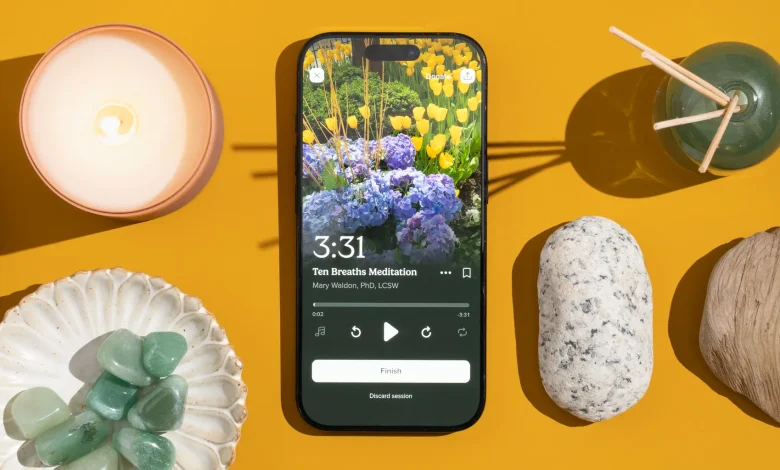The Modern Mind Toolkit: Online Platforms That Help You Feel Better Every Day

Mental health support isn’t limited to therapy sessions or self-help books anymore. A growing number of digital tools are making mental health care more accessible, affordable, and personalized—right from your laptop or phone. Whether you’re managing anxiety, boosting your mood, or just trying to stay more grounded in your day-to-day life, there’s likely a tool out there that fits your needs.
From science-backed mindfulness apps to AI journaling companions, here are a few online tools that are helping people feel better, think clearer, and build mental resilience.
1. Wysa: Your AI Mental Health Ally
Wysa is an AI-powered chatbot designed to help you process emotions and build mental strength—without judgment. It’s available 24/7 and uses evidence-based cognitive-behavioral techniques to guide you through anxiety, stress, or just a rough day.
What makes Wysa unique is that it offers both an automated support system and access to real human coaches if you upgrade. It’s particularly great for people who don’t feel ready to talk to a therapist but still want to work on their mental wellness in a safe, private space.
2. Insight Timer: Free Guided Meditations That Actually Work
Insight Timer is one of the most popular free meditation apps available, and for good reason—it offers thousands of guided meditations, music tracks, and breathwork sessions. You can choose meditations for sleep, anxiety, creativity, or even grief.
Unlike some meditation apps that gate most of their content behind a paywall, Insight Timer provides an incredible range for free. It’s perfect if you want to explore mindfulness but aren’t sure where to start or what style works best for you.
3. MindDoc: Track Your Mental Health Like a Pro
MindDoc, formerly known as Moodpath, is a self-monitoring app that helps you track your emotional states, energy levels, and thought patterns over time. It generates mental health reports that you can use for your own reflection—or to share with a therapist.
MindDoc is especially useful for spotting patterns you might otherwise miss, like recurring dips in mood after specific events or cycles of burnout. The app also includes bite-sized learning sessions on topics like self-worth and emotion regulation.
4. Woebot: A Friendly Face with Cognitive Muscle
Woebot is a chatbot developed by clinical psychologists that uses natural language processing to deliver real-time mental health support. It’s not just a venting space—it actively challenges your thinking using CBT (Cognitive Behavioral Therapy) techniques.
Woebot is especially helpful for reframing negative thoughts or catching cognitive distortions before they spiral. Think of it as a friendly digital coach that helps you practice mental flexibility in bite-sized, conversational ways.
5. Notion: Build a Mental Health Dashboard
While Notion is typically marketed as a productivity and note-taking app, it’s also incredibly powerful for mental health when used intentionally. You can build custom templates to track your mood, log gratitude, or manage burnout triggers.
Try setting up a weekly reflection board, a “mental reset” checklist, or even a therapy prep journal. Because it’s completely customizable, Notion works for both structure-lovers and creative freeform thinkers looking to gain more emotional clarity.
6. BetterHelp: Therapy, Wherever You Are
Sometimes digital self-help isn’t enough—and that’s where BetterHelp comes in. This online therapy platform connects you with licensed mental health professionals via video, phone, or messaging.
What sets BetterHelp apart is its flexibility: you can match with a therapist who fits your needs (specializing in anxiety, trauma, relationship issues, etc.) and communicate in ways that feel safe for you. It removes the location and scheduling barriers that often stop people from getting help.
🧘 FAQ: How Social Invitations Can Support Your Mental Health
Spending time with friends and loved ones is one of the simplest, most effective ways to improve your mental health. Whether it’s a quiet dinner, a weekend hike, or just tea and conversation, intentional connection can reduce stress, combat loneliness, and elevate your mood. And while spontaneous plans are wonderful, a thoughtfully designed invitation can help you be more intentional about reaching out—and make others feel genuinely welcomed. Here’s how invitation design can support your mental well-being and create deeper social bonds:
Q1: How can hosting a small gathering improve mental health?
Research shows that regular social interaction lowers cortisol levels, increases feelings of belonging, and even supports better sleep. Hosting a simple get-together—whether it’s just one person or a group—creates a low-stakes opportunity for joy, laughter, and emotional regulation. You don’t need a holiday or big milestone; even a “no-reason” dinner can give you and others something to look forward to.
Q2: Why does designing and sending an invitation matter?
Sending an actual invitation—rather than a casual text—shows intention. It lets your guests know that this time together matters, and that they’re being invited into something thoughtfully prepared. That small act of care often makes people feel more valued and more likely to attend. For you, the act of creating and sending an invite can help reduce social hesitation by providing a clear structure and timeframe.
Q3: What’s an easy tool I can use to make a digital invite?
A great option is to use an online invitation maker like Adobe Express. It offers customizable templates for everything from cozy coffee dates to mindfulness circles. You can easily add your own colors, text, and event details, then download or share directly via email or text. For other options, Paperless Post offers more formal digital invitations with RSVP tracking, and Greetings Island provides printable or digital invites with playful, casual designs.
Q4: How does the design of an invitation impact the emotional feel of the gathering?
Design cues matter. A warm-toned, hand-drawn invite might signal a quiet, reflective evening, while a bold, modern layout could inspire more energy and movement. Fonts, imagery, and even word choice all work together to reduce ambiguity and ease social nerves—especially for those who struggle with anxiety or feel unsure about attending group events. It helps guests mentally prepare and builds trust in the space you’re creating.
Q5: Can invitation design benefit me emotionally, too?
Definitely. Designing invitations gives you a creative role in setting the tone for something meaningful. It’s a gentle, intentional activity that combines planning with personal expression. When that design is linked to connection—whether it’s for two people or ten—you’re giving yourself both a purpose and a social outlet. That combination can be surprisingly powerful for improving mood, especially during periods of isolation or burnout.
Improving your mental health is rarely about one big step—it’s a series of small, intentional ones. Digital tools can offer daily support, reflection, and community in ways that fit your life. Whether you’re meditating, journaling, chatting with a digital coach, or sending a quiet invite to connect, the right tool can make the path a little lighter.





